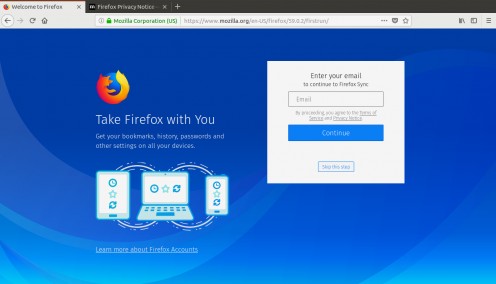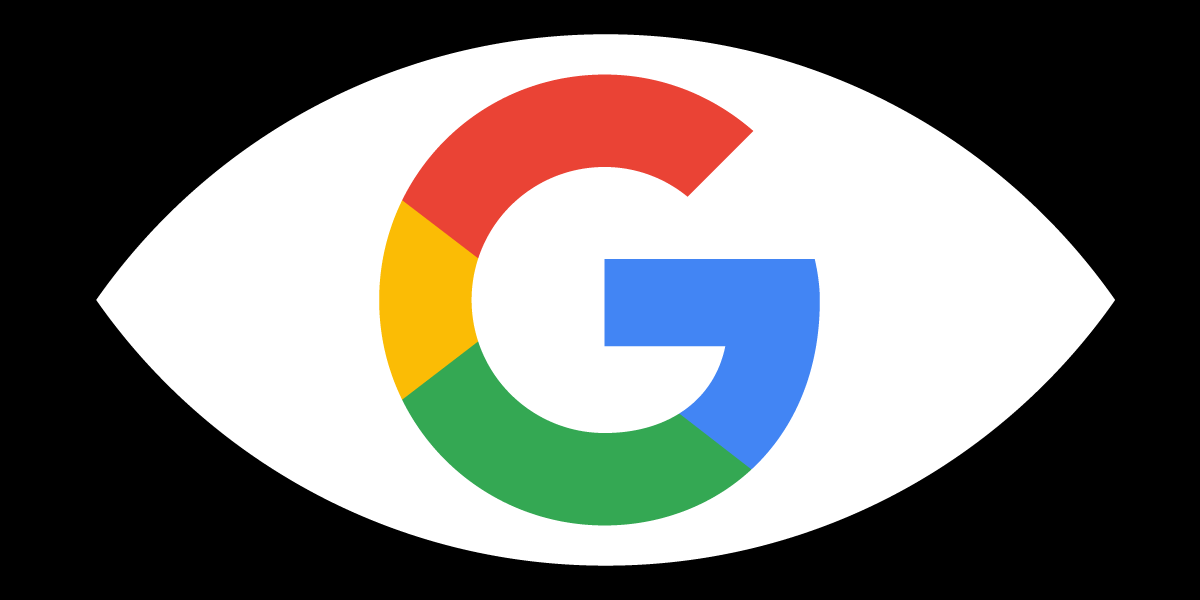The "Big Brother" We Accept

Big Brother is Watching You
George Orwell’s classic 1949 novel "Nineteen Eighty Four" popularized the adjective Orwellian, which describes official deception, secret surveillance, brazenly misleading terminology, and manipulation of recorded history by a totalitarian state. This book defined English gems like "Thought Police", "memory hole" and "Newspeak". The novel was overshadowed by the presence of a mysterious leader called Big Brother. The statement "BIG BROTHER IS WATCHING YOU" was omnipresent and the monitoring of the citizens was done by transceiving television sets in each household.
Marketing and Advertising
Several years ago when I was in a Marketing 101 class, I learned about traditional marketing avenues – print, broadcast, direct. While I no longer remember the specific prescribed reading books, I recall reading what I considered a radical postulation in one of them, which suggested that television programming was invented for the single purpose of delivering a (near) captive audience to the advertiser.
There have been enough surveys in America to determine whether the Super Bowl event was more interesting than the advertisements that came upduring the commercial breaks. In fact, a quick search shows that several prominent sites rate and analyze Super Bowl ads. The fact that content and advertising are firmly intertwined is accepted all over the world, and favorite advertisement characters are discussed as often as favorite sports stars or movie stars.
To those that doubt the power of marketing, just close your eyes and think of Christmas and bring up the image of Santa Claus – most of us have grown up accepting Coke’s version of Santa as authentic.

If you wonder where this is leading to, it is a fact that from the turn of this century, the internet evolved to become the new playground for marketers and advertisers – as a matter of fact, it is a symbiotic relationship that has evolved between free internet content and advertisements. Also, the ancient netters who patronized Usenet and considered the internet as a “free” medium has given way to the bloggers and social networkers – basically any individual who has an opinion and looks for ways to monetize that opinion, thus ushering in the technologies that support this requirement – the “Big Brother” on the internet.

Web Analytics
Most websites that you use – whether email, social networks, shopping, search, are all interested in securing visitors and ensuring that the visitor remains on their website. While this may have started as a brand-building activity, the phenomenon of digital advertising has grown and matured to such an extent that the advertising networks would like to use any and all available information about you. This is directed towards providing you with specifically targeted advertisements that, they hope, will incite you to click on the advertisement and eventually, spend money on the product being advertised. In order to do this, any and all information that you provide is examined and fed into the pot of the algorithms being cooked. The latest family of algorithms use advanced heuristics and artificial intelligence to predict what you would like to see.

You may have created your account on a social network and willingly provided your basic demographic information as a starting point, or you may have created an account on a shopping website providing your address, phone number and credit card details. You may have used a search engine which has your identity associated and stores every search string you used. You may have used a mapping application to find your way from point A to point B – thus providing your travel history.
All of this data is stored, matched, computed and ostensibly used to provide you a better experience on the internet.
Analytics also plays a strong role in commercial websites – studies are done into which parts of the website are more appealing to visitors. Heat maps are drawn up and customizations done with unappealing aspects of the websites being quickly dropped. A large part of this website analytics is done based on the HTTP traffic received at the website, checking the user interaction with the website, reviewing the time spent on different parts of the website. There are the web analytics companies who are directly contracted by commercial websites (a paid “big brother” of sorts) to dig and poke into their website usage with the target of ultimately giving you, the customer a better experience in the hope that this eventually contributes to the website revenues.

The usage of analytics for advertising is a slightly different category. You will have your own favorite corner of the web – where you go for news, to participate in discussions with like-minded strangers (or friends), your entertainment and information sources. Mostly,you also prefer that these corners of the web are available at no charge, despite the fact that building and hosting the service as well as ensuring that it continues to grow and thrive over time without hiccups costs money. The basic mechanics of keeping most of these sites available for free is made possible by delivering an appropriate audience to the advertising network. And the advertising network in its efforts to provide the best user experience delivers contextual advertisements or even better, a tailored contextual advertisement that utilizes data points about you that have been made available via other websites or “partners” of the advertising network that you have accessed.
The reference to “Big Brother” becomes more appropriate when you understand that these data points are continuously collected through various innocuous actions that you do on the internet.
Cookies
How do the commercial websites and advertising networks collect and maintain data about you? They actually store it right on your computer or mobile – in your web browser configuration. All browsers support cookies – these are pieces of data that are used to jog the memory of the website about your previous interactions.

On a historical note, cookie is derived from the term “magic cookie” which predated the web and was already in use in the networked computer world in the nineteen seventies. It referred to a data packet that a program received and sent back (or sent to another program) unchanged. While the packet had no meaning within that specific program, it was used by the sender as a means of identifying context.
So the web analyzers can just pick up the appropriate information from your configured cookies and interpret them to build your personal targeted advertisements.
There are also large databases that store aggregated information about you – especially since you now use multiple devices to access the internet, your profile has to be built across all our different devices.
As an example, I logged in to a system as a new user and the first screen that the browser gave me was to sync up my internet activities across different devices.

I then embarked on a singe visit to a news site and viewed their top level page - this gave me a bunch of cookies.

One point worth noting is that this offer to sync or the insertion of cookies is nothing negative, in itself. They are facilities being offered to the user, which have to be used appropriately.

Why do you give away personal information?
As an individual, you are conditioned to provide your basic demographic information from time to time. If you are traveling internationally, if you are seeking employment, if you are joining an educational program – refusing to provide your information would deprive you of the opportunity. So when an internet site gives you a form to fill out your personal information, you have to weigh the benefits of that site against providing the information requested. Firstly, a check can be done on which of the information requests are really pertinent and mandatory. Secondly, if the information is used in a responsible manner (and there are regulations and government agencies that watch over this) you probably do not see a major risk in handing over the information. The risk actually materializes only when the data is shared or used in an improper manner - these we hear about loud and long, from the press.
What about these trackers that keep building up information about you? The school of thought propagated by the advertising world is that this is essential to provide a better user experience – without a clear view of your preferences for an European holiday, the advertisement network cannot throw up advertisements offering just that. And before you state that you do not want any advertisements, ever, please recall that without the advertisements, many of your free sites will start charging you for access. Obviously, advertising on the internet is here to stay, your data is simply used to provide you with better targeted advertisements.
It is also not that the advertisers are unregulated in the way they use your data – the DAA (Digital Advertising Alliance) has a self-regulatory framework, that includes offering the user the choice of deciding what data can be tracked and providing opt-out mechanisms for targeted advertising.

Do not track
Some individuals get paranoid about this tracking and wonder if there is a way to get out of it. There have been many attempts to provide a global “Do not track” mechanism – in its simplest form this could be implemented via a field in the HTTP header that could be set in the browser configuration and honored by all websites. However, this is a hotly debated topic between legislators and the marketing/advertising companies with no proper consensus. Over the years, what has emerged is the need to keep the user informed on the type of data collected, with whom it is shared and allowing the user control to delete any of this data at any time. It is up to to the users to build their knowledge on the level of control they have and to exercise it appropriately.
There are also situations (both legal and illegal) where you would not like your actions on the internet tracked. The best legal example is when you would like to investigate about an illness that afflicts either you or a loved one. There are tools available for such situations - as a starting point, there is a search engine which is built around the do-not-track principle and a browser which masks your identity on the internet.
GDPR and ePrivacy
The EU has been on the forefront of legislating data protection and the world is at the cusp of GDPR (General Data Protection Regulation) going live. At its core, GDPR mandates explicit and informed consent for personal information collection, as well as mechanisms to allow a user to revoke that consent. There are also clear penalties defined for violations. Most internet economy companies are bringing to life features that support their interpretation of GDPR ahead of the go-live date, but only time will tell if their interpretations stand up to the EU regulatory audit standards.
The ePrivacy directive has already been in effect for nearly a decade, and there is currently a proposal ongoing for its update – the most visible aspect of this directive is the pop-up you see on most websites that tells you that the site use cookies and that if you continue on their website, you accept the usage of these cookies. The directive states that user consent is required for “non-essential” cookies, which primarily refers to cookies used for tracking user behavior.
So what should I do?
As a user of the internet, the most obvious requirement is to be aware of what surfing the internet means in today’s context. You then have to exercise your informed choices on what type of tracking is acceptable to you. For this, you should understand how to access your personal data (whether via your browser cookie configurations or via the personal information stored on websites) and to accept or delete what is being tracked about you. It goes without saying that this is not a one time process, the internet and its surrounding technologies continue to evolve and you will have to keep track of what changes affect your personal information and decide on appropriate actions.

© 2018 Saisree Subramanian








